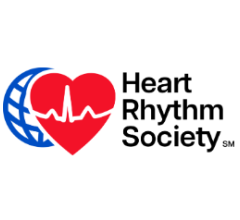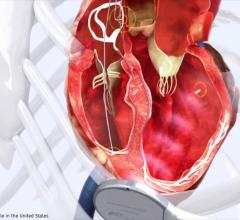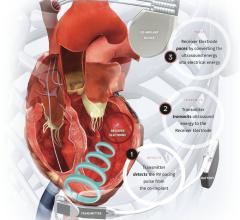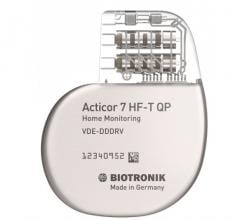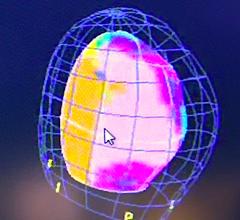
September 20, 2016 — Medtronic plc announced the results of an analysis that reveals patients increasingly adhere to heart failure medications after they receive cardiac resynchronization therapy (CRT) devices. The analysis of more than 4,500 patients revealed that compliance with their medications increased 67 percent 24 months after receiving their CRT implants, compared to the 24 months prior to implant (p<0.001). The results were presented at the 2016 Heart Failure Society of America (HFSA) Scientific Meeting in Orlando, Fla.
CRT is a proven treatment for select patients with heart failure, and in combination with optimal medical therapy has been shown to further reduce patients’ symptoms and extend their survival. Patients’ adherence to medication is a major component of heart failure self-management, and commonly prescribed therapies include angiotensin-converting enzyme inhibitors (ACE-I) or angiotensin receptor blockers (ARB), beta-blockers (BB), direct renin inhibitors (DRI), and diuretics for patients with heart failure and a reduced ejection fraction. Additionally, for heart failure patients whose hearts pump out of sync, professional medical guidelines recommend cardiac resynchronization therapy-pacemakers (CRT-P) or -defibrillators (CRT-D).
The retrospective analysis used administrative claims data from 4,512 patients, younger than 65 years old, who received CRT devices between January 2008 and December 2014. Patients’ adherence to a regimen of guideline-recommended medication classes (diuretic, ACE-I, ARB, BB, aldosterone antagonist, digoxin, and statin) before CRT and after CRT implantation was assessed using proportion of days covered (PDC), which measures the availability of all prescribed medications simultaneously in these patients’ homes.
The number of patients considered fully compliant with their medication regimens (PDC ≥ 80 percent) nearly doubled at 12 months following CRT implants. Additionally, the proportion of compliant patients increased substantially for individual medication classes at 12 months following CRT implants (ACE-I at 54.4 percent vs 37.1 percent, BB at 58.2 percent vs 33.9 percent, loop diuretic at 41.8 percent vs 27 percent).
“With some heart failure patients, CRT is a turning point in their treatment plan because — in addition to their being monitored more closely — the severity of their symptoms diminish. Technology may lead to greater medication compliance, helping heart failure patients better manage their conditions, while keeping them out of the hospital and, ultimately, reducing costs for the healthcare system,” said David Steinhaus, M.D., vice president and general manager of the Heart Failure business, and medical director for the Cardiac Rhythm and Heart Failure division of Medtronic.
For more information: www.medtronic.com


 July 21, 2025
July 21, 2025 
